- Author Jason Gerald gerald@how-what-advice.com.
- Public 2023-12-16 10:50.
- Last modified 2025-01-23 12:04.
Avidemux is an open-source and cross-platform video editing program (runs on Microsoft Windows, Linux and Mac OS X). Avidemux supports many file types, formats and codecs. The program is a reliable tool, but not "user friendly". Follow these instructions to perform some of the basic video editing functions available on Avidemux.
Step
Method 1 of 5: Merge Video Clips
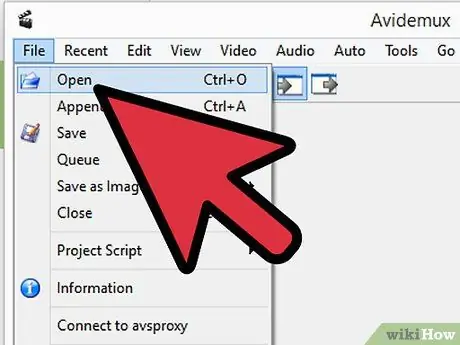
Step 1. Open the initial video clip
To do so, click "File" and select "Open". Browse to the first video you want to open.
If you want to merge converted video files, open the main VOB file and the rest will be merged automatically. The main VOB file is usually named VTS_01_1.vob
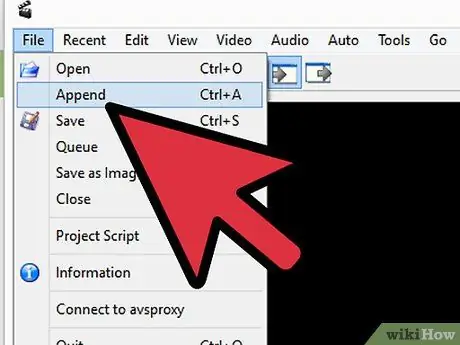
Step 2. Add a second clip to the end
Click "File", then select "Append". Browse to the file you want to add to the end of the first clip.
The second file must be the same as the initial file, in terms of width, height, and framerate
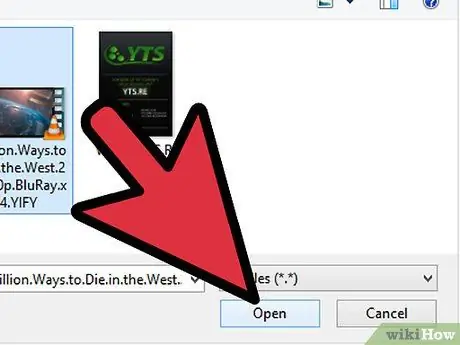
Step 3. Add more clips
You can continue to add clips to the end of the file by following the same method.
Method 2 of 5: Cutting Clips
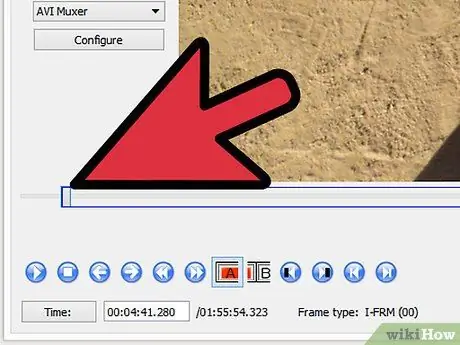
Step 1. Determine the starting point
Use the navigation bar located below the video to find the beginning of the clip you want to remove from the video. Press the “A” button in the playback menu or press the “[“button to specify the starting point for the cropped part.
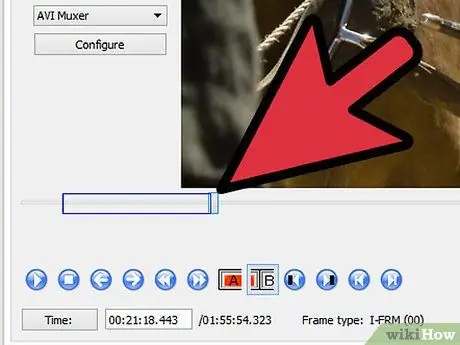
Step 2. Determine the end point
Move the navigation bar further down the line to define the end point of the cut section. Once defined, press the "B" button or the “]” button to specify the end point of the cut section. The section will be highlighted, representing the clip to be deleted.
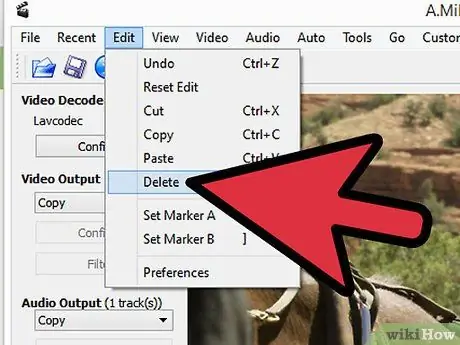
Step 3. Delete the segment
When you are satisfied with the selected section, press the “Del/Delete” button to delete the highlighted segment. If you want to cut only the segment so that it can be pasted elsewhere, select "Cut" from the "Edit" menu or press Ctrl+X.
Method 3 of 5: Changing File Format and Size
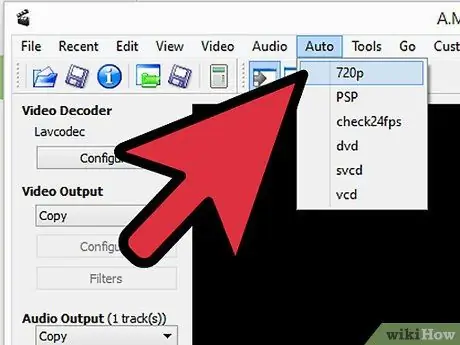
Step 1. Select a preset format
If you have a specific device that you want the video to be compatible with, click the "Auto" menu and choose from the list of available presets. All settings will be automatically configured. If your device is not on that list or you want to convert to something else, continue to the next step.
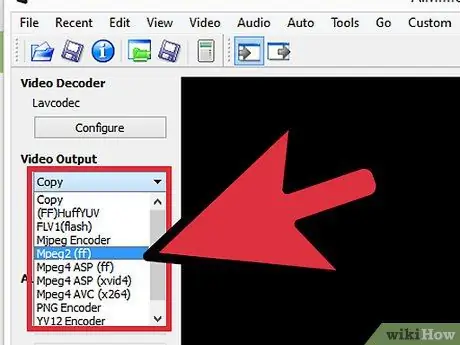
Step 2. Select the video codec
In the "Video Output" section in the left frame, click the dropdown menu and select the required codec. Mpeg4 (x264) is one of the most common formats accepted by most media players.
By selecting "Copy", the existing format will still be saved
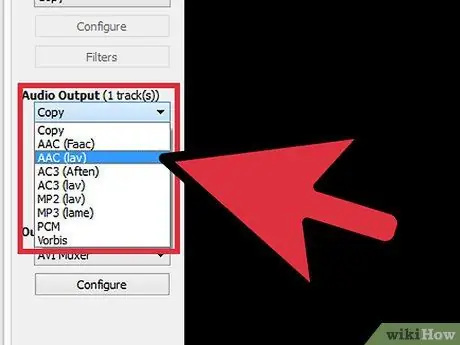
Step 3. Select your Audio codec
In the "Audio Output" section, just below the "Video Output" section, click the pulldown menu and select the audio codec you prefer. AC3 and AAC are two of the most popular codecs.
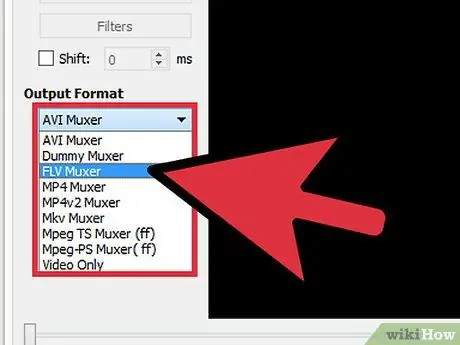
Step 4. Choose a format
In the "Output Format" section, click the pulldown menu to select the format you want for the file. MP4 will be playable on most devices, and MKV is one of the preferred formats for use on a PC.
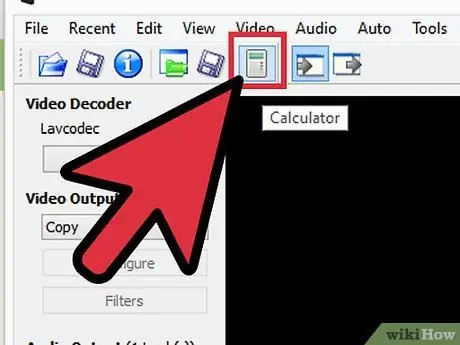
Step 5. Resize the video file
Click the Calculator button in the top row of icons to adjust the final file size. Specify the “Custom size” section according to the size for the file you want. The bitrate of that video will be changed automatically to match the size requirements.
Smaller video sizes will be of lower quality than larger ones
Method 4 of 5: Adding Filters
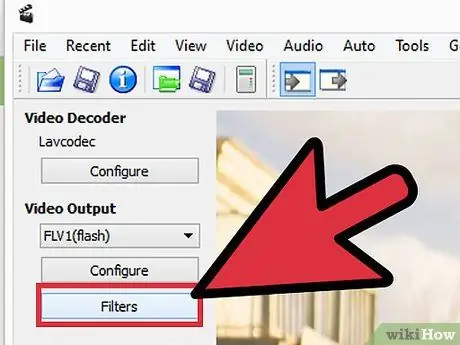
Step 1. Click the "Filters" button in the "Video Output" section
Here you can choose from a variety of filters that will affect the appearance of your final video. Some of the more popular options will be outlined in the following steps.
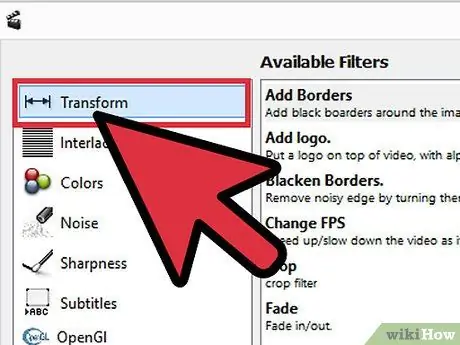
Step 2. Transform the video
The Transform filter category will allow you to customize how the video is displayed. You can add a border to the video, paste a logo, and more.
- To change the video dimensions, use the “SwSResize” filter to manually adjust the final video resolution. You can resize by percentage or by the actual pixel size of the video.
- The “crop” filter will allow you to crop the sides of the video. Double-click the option to specify how much you want to cut from each side.
- Fade in and out the video using the “Fade” filter. Double click to specify the time on the video when the fade starts.
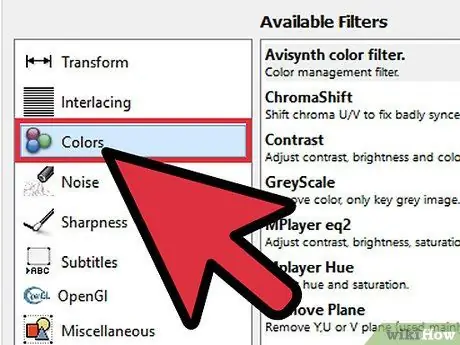
Step 3. Adjust the colors
Use the Colors category to adjust saturation, hue, and more. Combine different filters to get a color scheme that looks completely unique to your video.
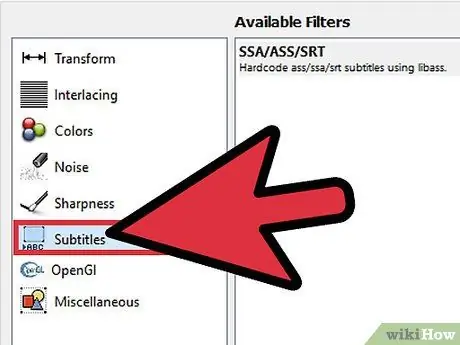
Step 4. Add subtitles
If you have a subtitle file for your video, you can add it to your video by using the SSA filter in the Subtitles category. You can customize where the subtitles appear on the screen.

Step 5. Get more filters
You can add filters developed by community members. These filters can be downloaded online from the Avidemux community site. Once you've downloaded the filters, click the "Load filters" button to add them to the list.
Method 5 of 5: Preview and Save Work
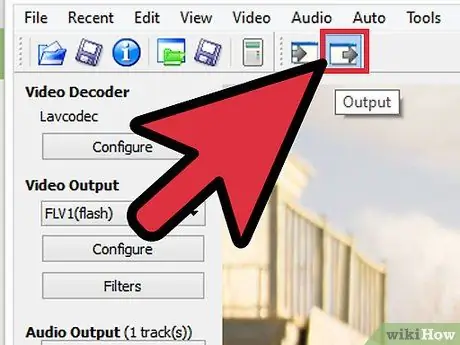
Step 1. Switch to Output mode
On the top row of icons, click the "Output" button, which has an arrow icon pointing to the right side of the screen. The view will be redirected to the final version of your video, where you can review the filters and changes that have been made.
Press the "Play" button at the bottom to see the Output version of the video
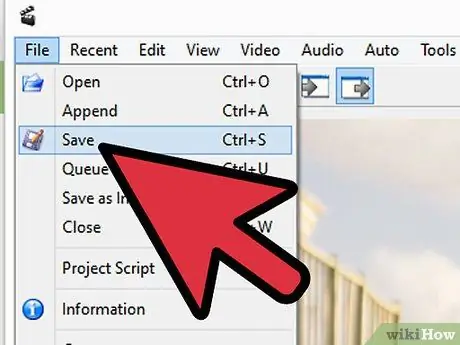
Step 2. Press "Save"
You can select "Save" from the "File" menu or press the "Save" button in the top row of icons. Name the file and choose where you want to save the file.
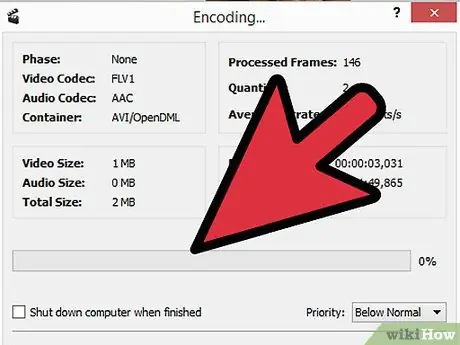
Step 3. Wait for the encoding process to complete
Once you click the "Save" button, Avidemux will begin to encode the video according to the settings you have previously defined. Depending on how much encoding you do, the process can take a while. When the encoding process is complete, open the video in the media player of your choice to try it out.






